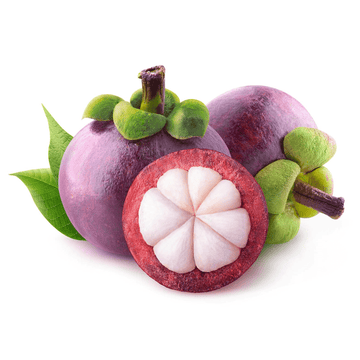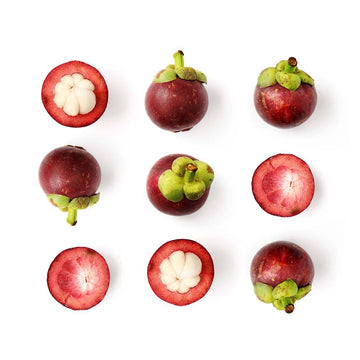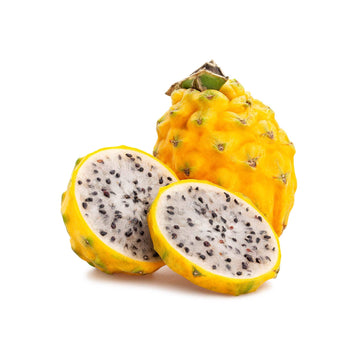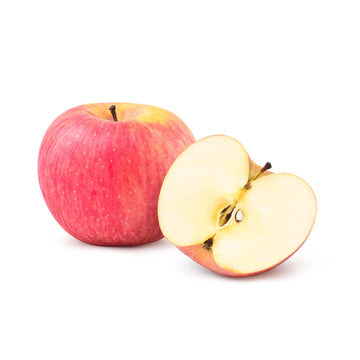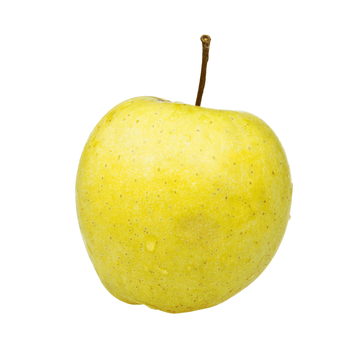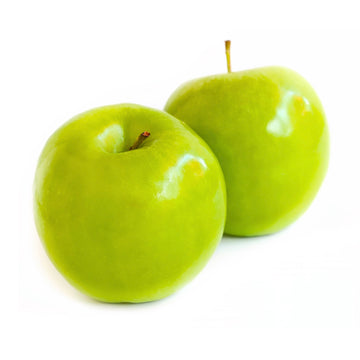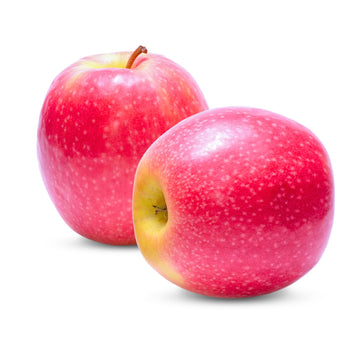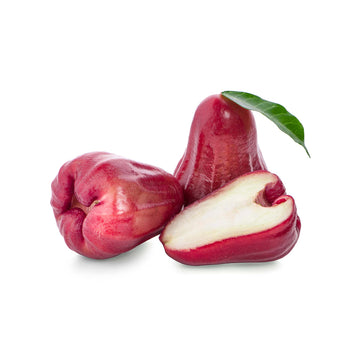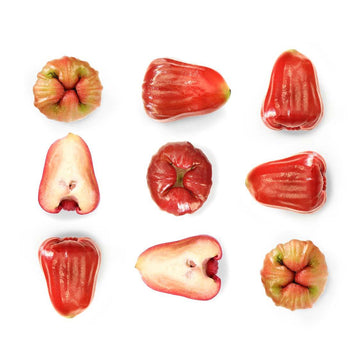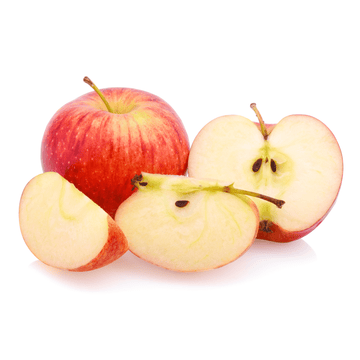Natural vs. Refined Sugar: How Different Are They?
In today’s health-conscious world, sugar has become a hot topic. From dietary guidelines to wellness blogs, the debate over sugar’s role in our diets is ever-present. There is often a confusion surrounding sugars—particularly the difference between natural sugars found in fruits and the refined sugars that dominate processed foods.
This blog post dives deep into the science and benefits of natural sugars, like those found in fruits, and explains why they’re a superior choice compared to refined sugars. By the end, you’ll understand why reaching for a juicy mango or a sweet dragon fruit is not just good for your taste buds, but also for your health.
What Are Natural Sugars?
Natural sugars are those found inherently in whole foods, such as fruits, vegetables, and dairy. These sugars include fructose and glucose, which are naturally occurring carbohydrates. Unlike their refined counterparts, natural sugars come packaged with a host of nutrients that enhance their value in a balanced diet.
For example, a single serving of papaya provides not only natural sugars for energy, but also fibre, vitamin C, vitamin A, and antioxidants like lycopene. These nutrients work together to support digestion, boost immunity, and protect against oxidative stress.
Or durian, often called the “king of fruits.” Its creamy flesh delivers natural sugars alongside potassium, B vitamins, and healthy fats, making it a satisfying and nutrient-dense choice.
Natural sugars are metabolised by the body in a way that aligns with its natural processes. The presence of fibre in fruits slows down sugar absorption, preventing the rapid blood sugar spikes associated with refined sugars. This synergy of nutrients is what sets natural sugars apart, making them a wholesome energy source rather than an empty calorie bomb.
What Are Refined Sugars?
Refined sugars, on the other hand, are extracted from plants like sugarcane or sugar beets and processed into concentrated forms such as table sugar, high-fructose corn syrup, or other sweeteners found in sodas, candies, and baked goods.
These sugars are stripped of any nutritional companions—fibre, vitamins, minerals—leaving behind pure calories with no redeeming qualities.
The refining process removes the plant’s natural components, resulting in a product that delivers a quick hit of sweetness, but little else. Consuming refined sugars can lead to rapid spikes in blood glucose levels, followed by crashes that leave you feeling tired and craving more.
Over time, excessive intake of refined sugars is linked to health issues like obesity, type 2 diabetes, and heart disease, as numerous studies have shown.
The Nutritional Edge of Natural Sugars
One of the most compelling reasons to choose natural sugars over refined ones is their nutritional profile. Fruits, in particular, offer a dazzling array of benefits that make them stand out. Let’s break it down:
1. Fibre: The Blood Sugar Stabiliser
-
Fruits like guava, passion fruit, and kiwi are rich in dietary fibre, which slows the absorption of sugars into the bloodstream. This helps maintain stable blood sugar levels, reducing the risk of energy crashes or insulin resistance. For instance, a single guava contains about 9 grams of fibre per cup, making it an excellent choice for sustained energy.
-
Refined sugars, by contrast, lack fibre entirely, leading to quick spikes and drops in blood sugar.
2. Vitamins and Minerals: A Nutrient Boost
-
Fruits are packed with essential nutrients that support overall health. Mangosteen, for example, is rich in xanthones, a type of antioxidant with anti-inflammatory properties. Dragon fruit provides magnesium, which supports muscle function and energy production. These nutrients work in tandem with natural sugars to fuel your body efficiently.
-
Refined sugars offer no such benefits, contributing only empty calories that can lead to nutrient deficiencies if over-consumed.
3. Antioxidants: Fighting Free Radicals
-
Many exotic fruits are vibrant in colour, a sign of their high antioxidant content. Starfruit, with its bright yellow hue, contains flavonoids that combat oxidative stress. Pomegranate is loaded with punicalagins, which are powerful antioxidants that protect against heart disease and inflammation. These compounds enhance the health benefits of natural sugars.
-
Refined sugars do the opposite; they contribute to inflammation when consumed in excess.
4. Hydration: A Bonus Benefit
-
Fruits like watermelon, rambutan, and lychee have high water content, helping you stay hydrated while enjoying their natural sweetness. Proper hydration supports metabolism, digestion, and even skin health.
-
Refined sugars, often found in sugary drinks, can actually dehydrate you due to their high concentration and lack of water content.
The Health Impacts: Natural vs. Refined
The differences between natural and refined sugars extend beyond nutrition to their effects on the body. Let’s explore how these sugars impact your health over time.
1. Blood Sugar and Energy Levels
-
When you eat a piece of fruit, the natural sugars are released slowly into your bloodstream, thanks to the fibre and other nutrients. This provides sustained energy without the rollercoaster effect of refined sugars. For example, eating a handful of cherimoya—a creamy, sweet fruit—gives you a steady energy boost, perfect for a mid-afternoon snack.
-
Refined sugars, found in items like cookies or soda, cause rapid blood sugar spikes, followed by crashes that can leave you feeling sluggish and irritable.
2. Weight Management
-
The fibre and water content in fruits promote satiety, helping you feel full longer and reducing the likelihood of overeating. A study published in the Journal of Nutrition found that diets high in whole fruits were associated with lower body weight and reduced risk of obesity.
-
Refined sugars, however, are calorie-dense and lack satiety-promoting nutrients, making it easy to over-consume them without feeling satisfied.
3. Long-Term Health Risks
-
Excessive consumption of refined sugars is strongly linked to chronic diseases. The American Heart Association recommends limiting added sugars to 25-36 grams per day, yet many people exceed this due to processed foods. High refined sugar intake is associated with increased risks of heart disease, type 2 diabetes, and fatty liver disease.
-
Natural sugars, when consumed as part of whole fruits, don’t carry the same risks. In fact, studies, such as one from the British Medical Journal, show that fruit consumption is linked to a lower risk of cardiovascular disease and certain cancers.
4. Dental Health
-
Refined sugars are a primary culprit in tooth decay, as they feed harmful bacteria in the mouth.
-
Fruits, while sweet, are less likely to cause dental issues due to their water content and natural enzymes, which help cleanse the mouth. Chewing fibrous fruits like apples or guava can even stimulate saliva production, which protects teeth.
Practical Tips for Choosing Natural Sugars
Ready to make the switch from refined to natural sugars? Here are some practical ways to incorporate exotic fruits into your diet:
-
Snack Smart: Replace sweets or cookies with slices of starfruit or a handful of lychees. Keep a bowl of your favourite fruits pre-cut in the fridge for easy access.
-
Smoothie Boost: Blend mangosteen or dragon fruit into smoothies for a naturally sweet, nutrient-packed drink. Add a handful of spinach for an extra health kick.
-
Dessert Upgrade: Create a tropical fruit salad with fruits like rambutan, pineapple, and papaya for a refreshing, guilt-free dessert.
-
Baking with Fruit: Use mashed bananas or pureed dates to sweeten baked goods naturally, reducing the need for refined sugar.
-
Explore New Flavours: Visit an exotic fruit supplier (like us!) to try new fruits and discover their unique sweetness. Experiment with recipes to find your favourites.
Addressing Common Misconceptions
Some people worry that the fructose in fruit is just as harmful as refined sugars. This is a misunderstanding. While both contain fructose, the fructose in fruit is accompanied by fibre, water, and nutrients that mitigate its impact on the body. The American Diabetes Association supports fruit consumption as part of a balanced diet, even for those managing diabetes, when eaten in appropriate portions.
Another myth is that all sugars are “bad.” This oversimplification ignores the context in which sugars are consumed. Whole fruits, with their natural sugars, provide a wealth of health benefits that refined sugars simply can’t match.
The Environmental Angle
Choosing natural sugars from fruits also aligns with sustainable practices. Exotic fruit farming, when done responsibly, supports biodiversity and local economies in tropical regions.
In contrast, the production of refined sugars often involves intensive processing, which can have a higher environmental footprint due to energy use and waste.
Conclusion
The choice between natural and refined sugars is clear. Natural sugars, especially those found in exotic fruits, offer a delicious, nutrient-rich way to satisfy your sweet tooth while supporting your health. From stabilising blood sugar to providing essential vitamins and antioxidants, fruits like mangosteen, rambutan, and dragon fruit are nature’s perfect sweeteners. Refined sugars, stripped of nutrients and linked to health risks, simply can’t compete.

